Stem Cell
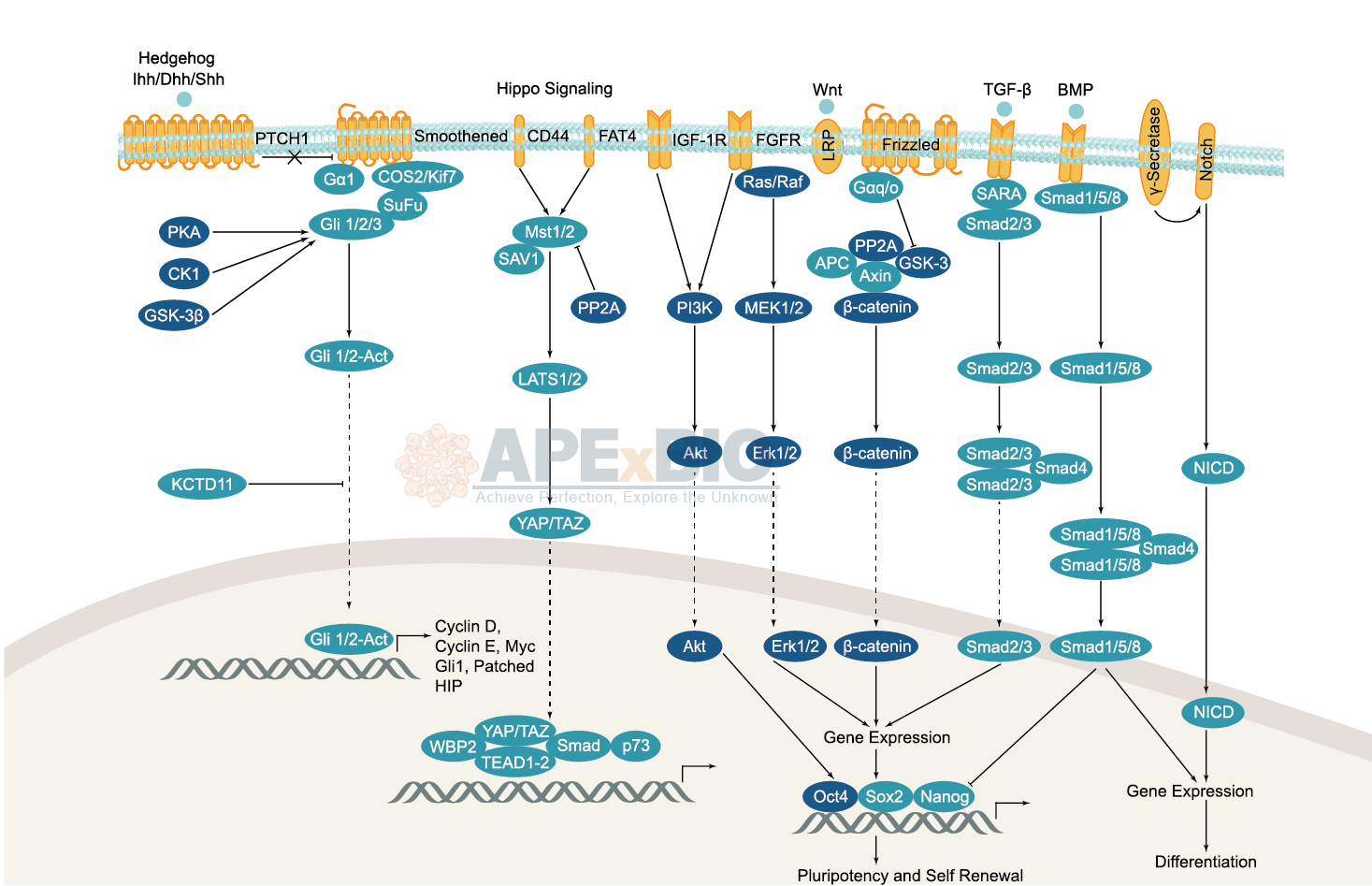
In ESC, BMP/TGF-β signaling pathway plays a key role in maintaining pluripotency and self-renewal. It signals through Smad proteins, and the FGF signaling pathway, which activates the MAPK and Akt pathways. The Wnt signaling pathway also promotes pluripotency. OCT-4, SOX2, and NANOG are three main transcription factors that are expressed and activated by these pathways. Induced pluripotent stem cells (iPSC) are pluripotent cells that can be generated from differentiated cells with forced expression of specific reprogramming factors. Both ESC and iPSC can be induced to develop into distinct cell types that associated with three primary germ layers: ectoderm, mesoderm and endoderm. Signaling pathways that control the development of these cell lineages, including BMP/TGF-β, Notch, Wnt/β-catenin, Hedgehog and Hippo pathways, which regulate cell division, growth and differentiation. Defects in stem cell signaling are related to developmental disorders and cancer.
-
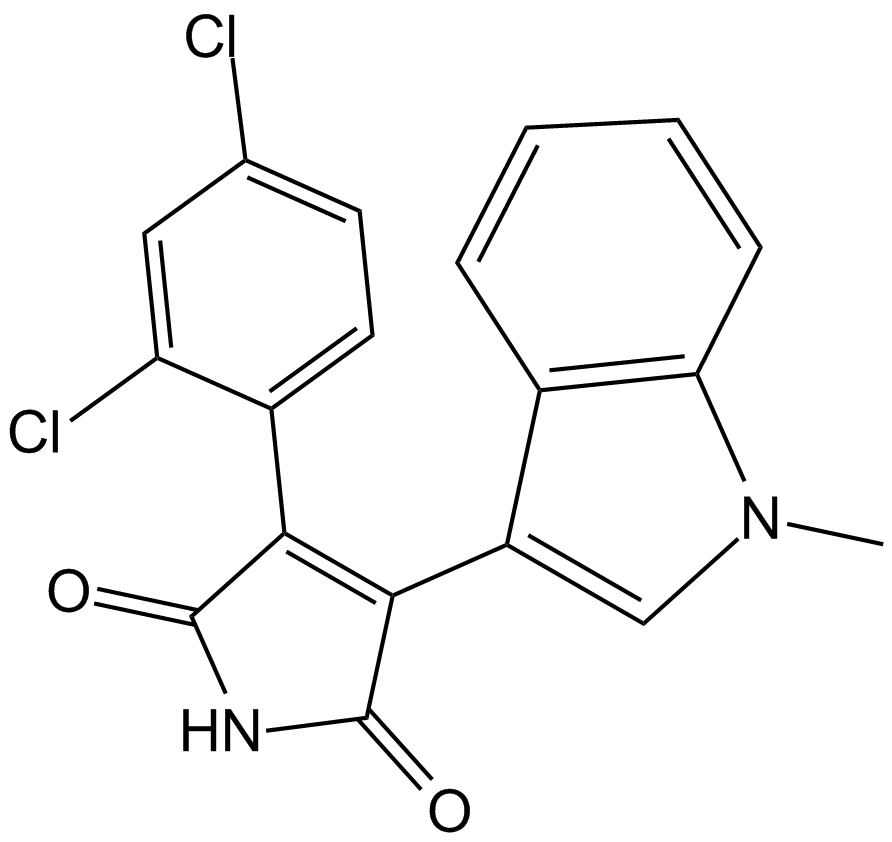 A8240 SB 2167633 CitationTarget: GSK-3Summary: GSK-3 inhibitor,ATP-competitive,potent and selective
A8240 SB 2167633 CitationTarget: GSK-3Summary: GSK-3 inhibitor,ATP-competitive,potent and selective -
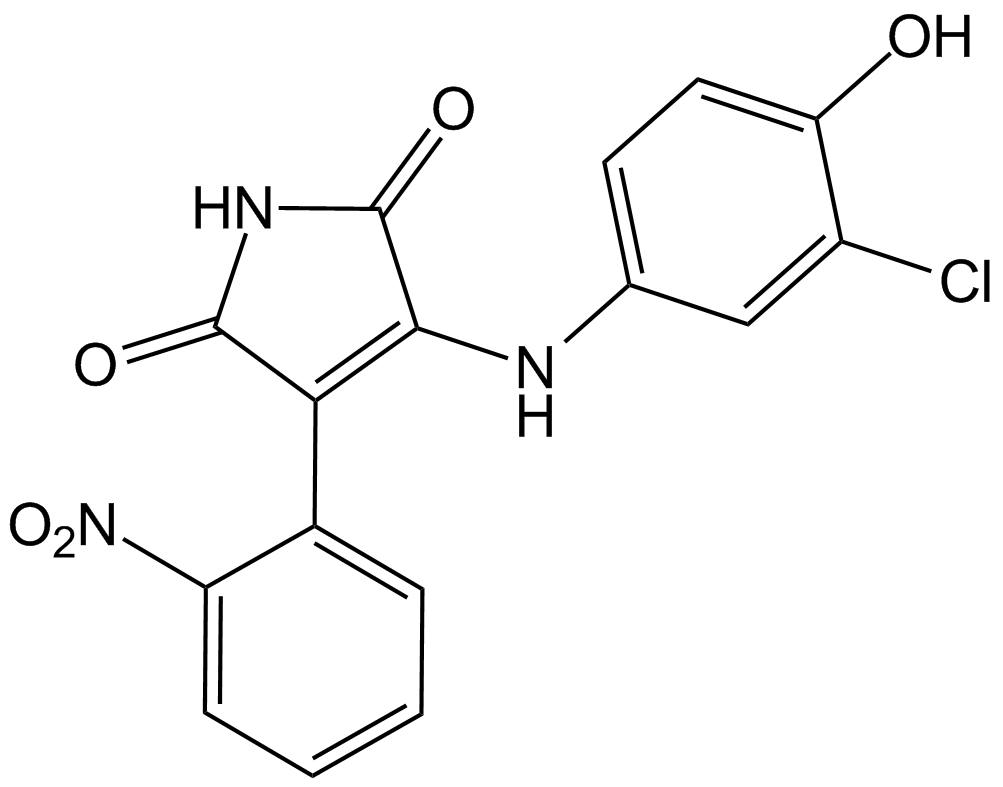 A8241 SB 4152861 CitationSummary: GSK-3 inhibitor,potent and selective
A8241 SB 4152861 CitationSummary: GSK-3 inhibitor,potent and selective -
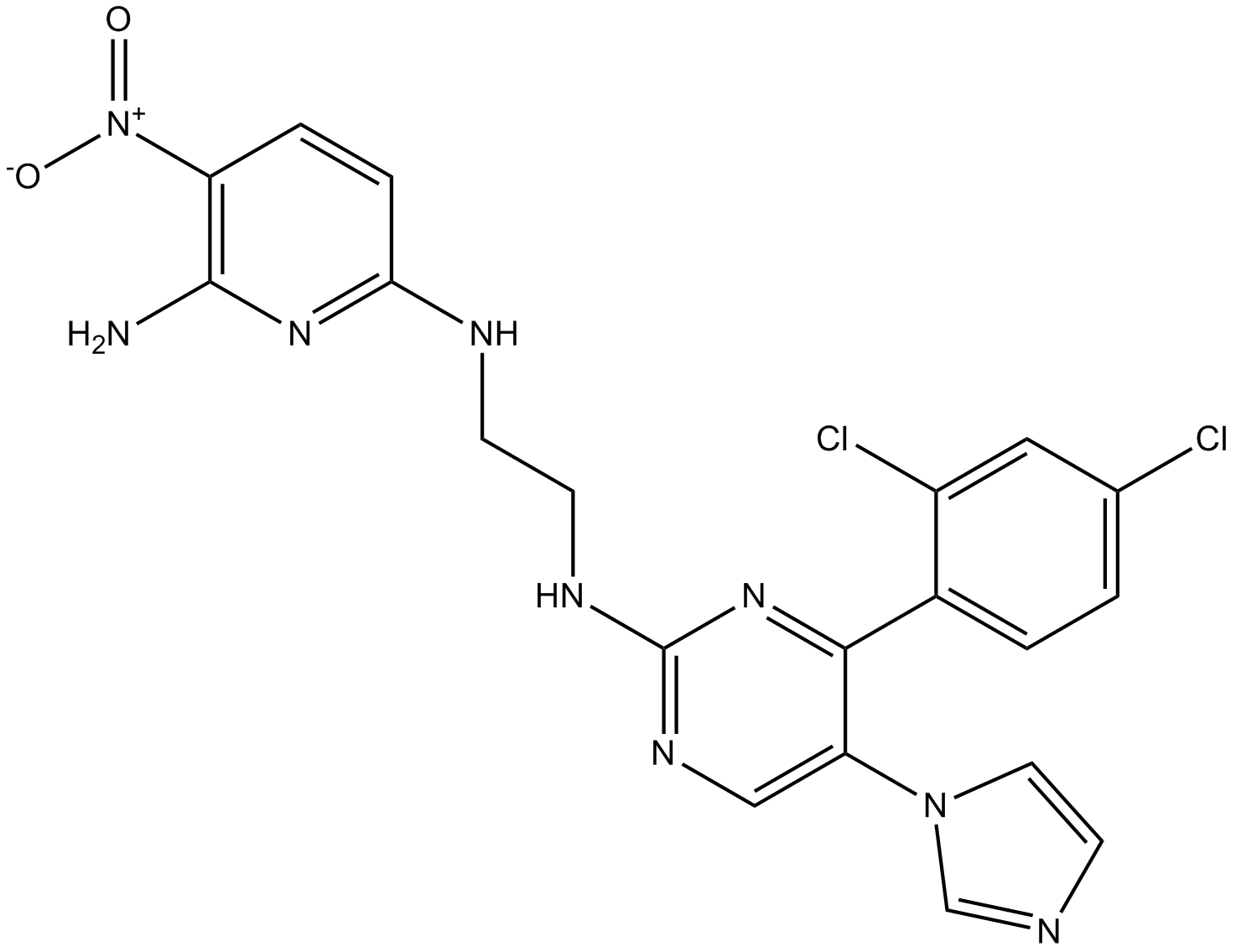 A8395 CHIR-98014Target: GSK-3Summary: GSK-3β inhibitor,selective and ATP-competitive
A8395 CHIR-98014Target: GSK-3Summary: GSK-3β inhibitor,selective and ATP-competitive -
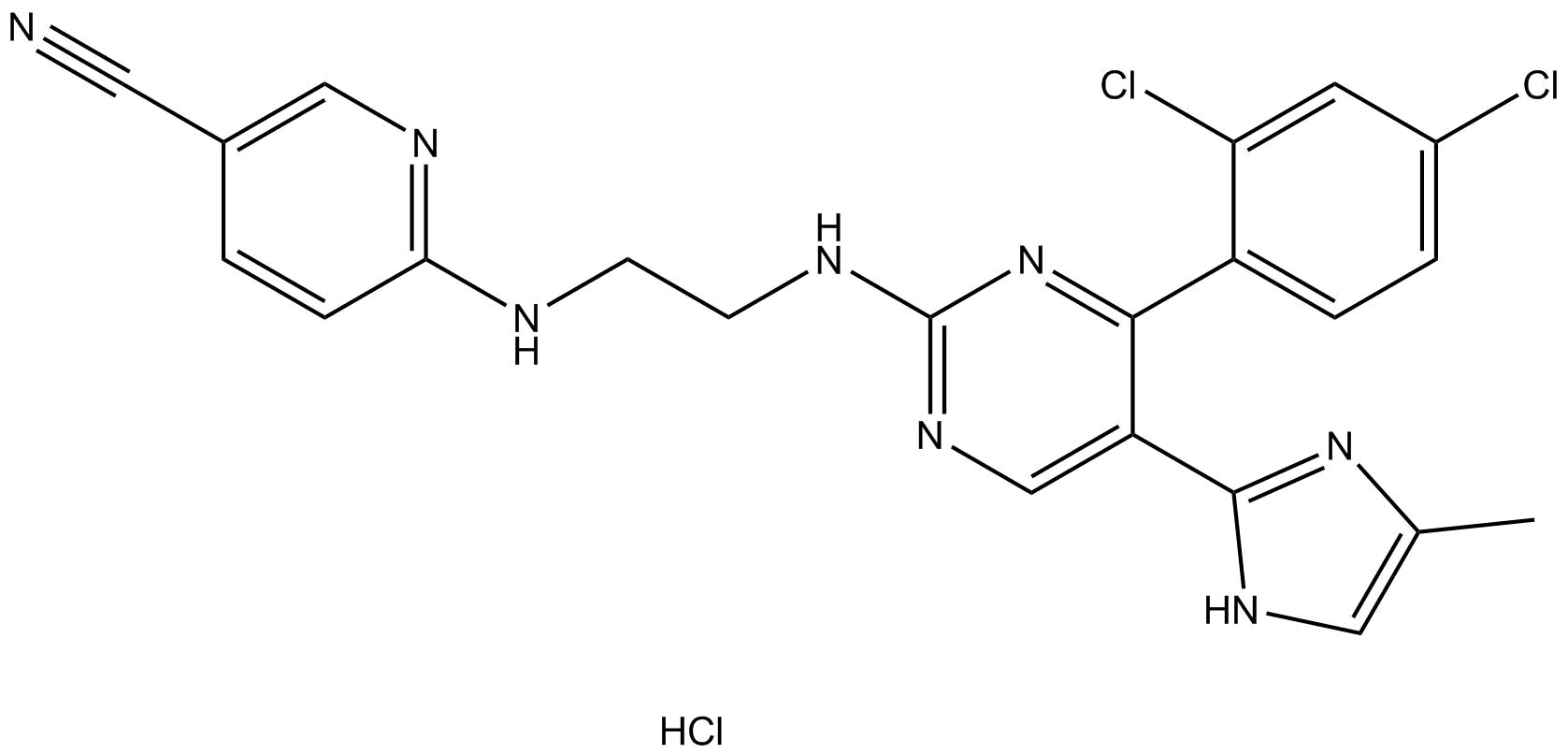 A8396 CHIR-99021 (CT99021) HClTarget: GSK-3Summary: GSK-3α/β inhibitor
A8396 CHIR-99021 (CT99021) HClTarget: GSK-3Summary: GSK-3α/β inhibitor -
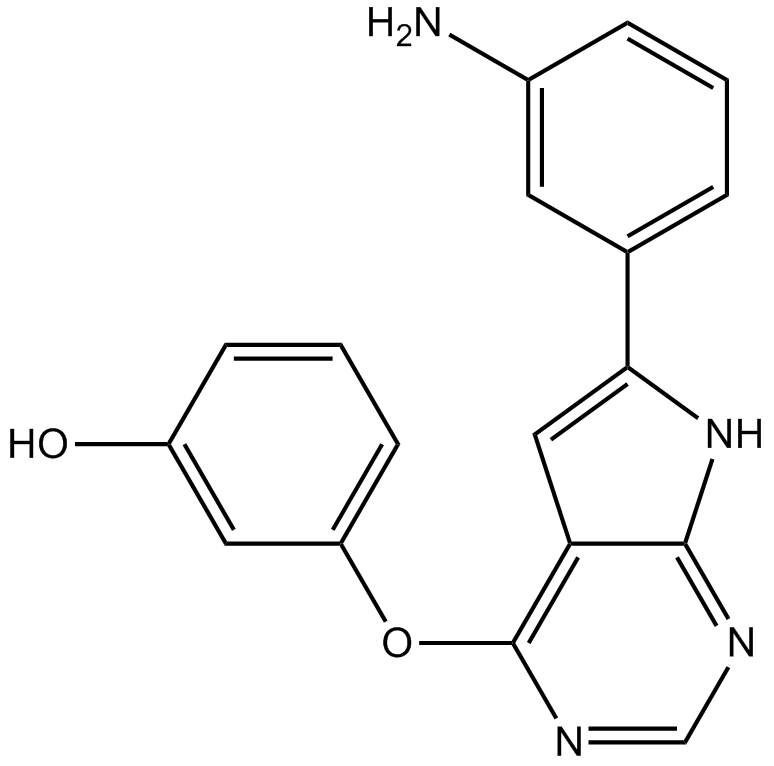 B1540 TWS1191 CitationSummary: GSK-3β inhibitor
B1540 TWS1191 CitationSummary: GSK-3β inhibitor -
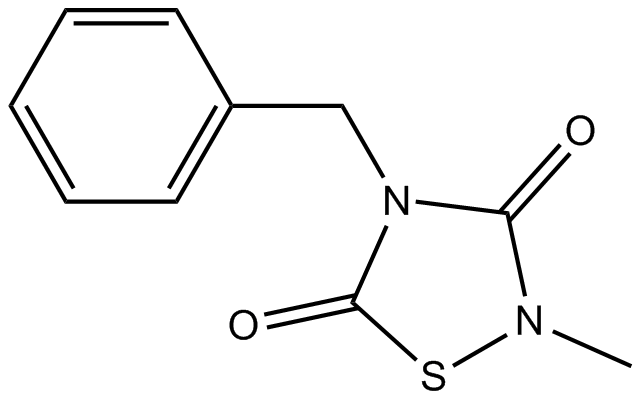 B1249 TDZD-81 CitationSummary: GSK-3β inhibitor
B1249 TDZD-81 CitationSummary: GSK-3β inhibitor -
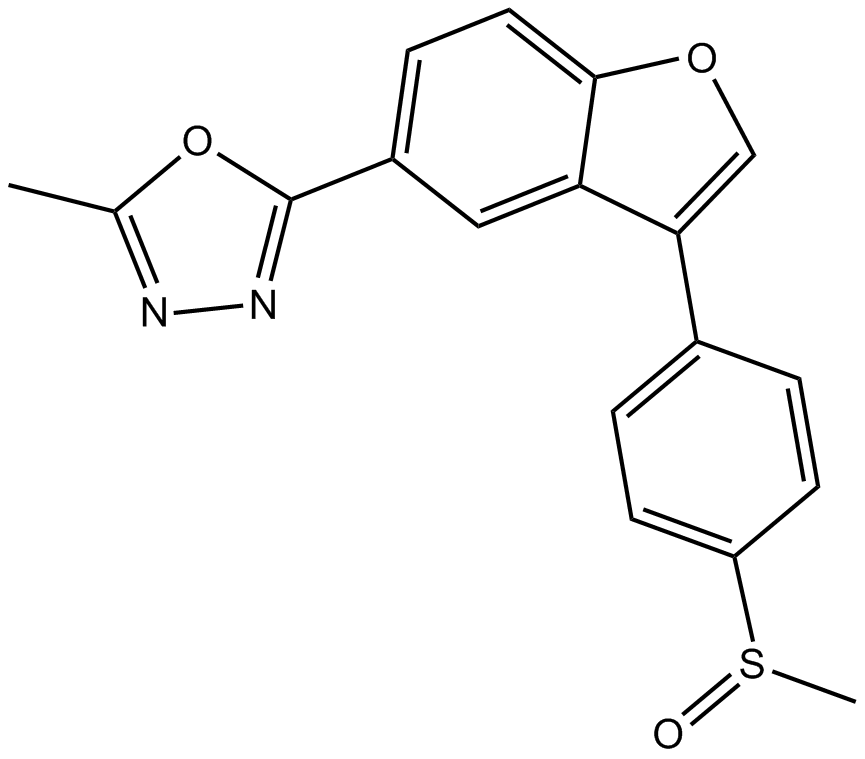 B5486 TCS 2002Summary: GSK -3β inhibitor, potent
B5486 TCS 2002Summary: GSK -3β inhibitor, potent -
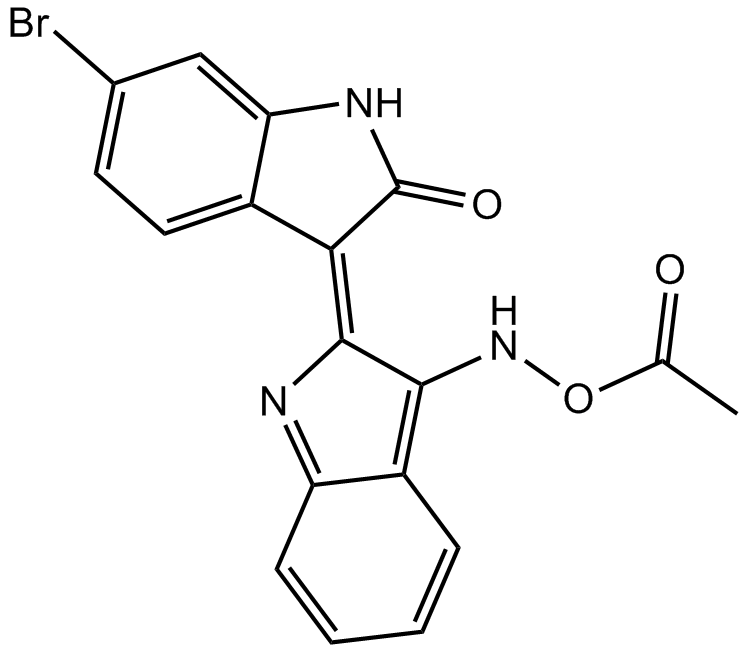 B5488 BIO-acetoximeSummary: GSK-3α/β inhibitor
B5488 BIO-acetoximeSummary: GSK-3α/β inhibitor -
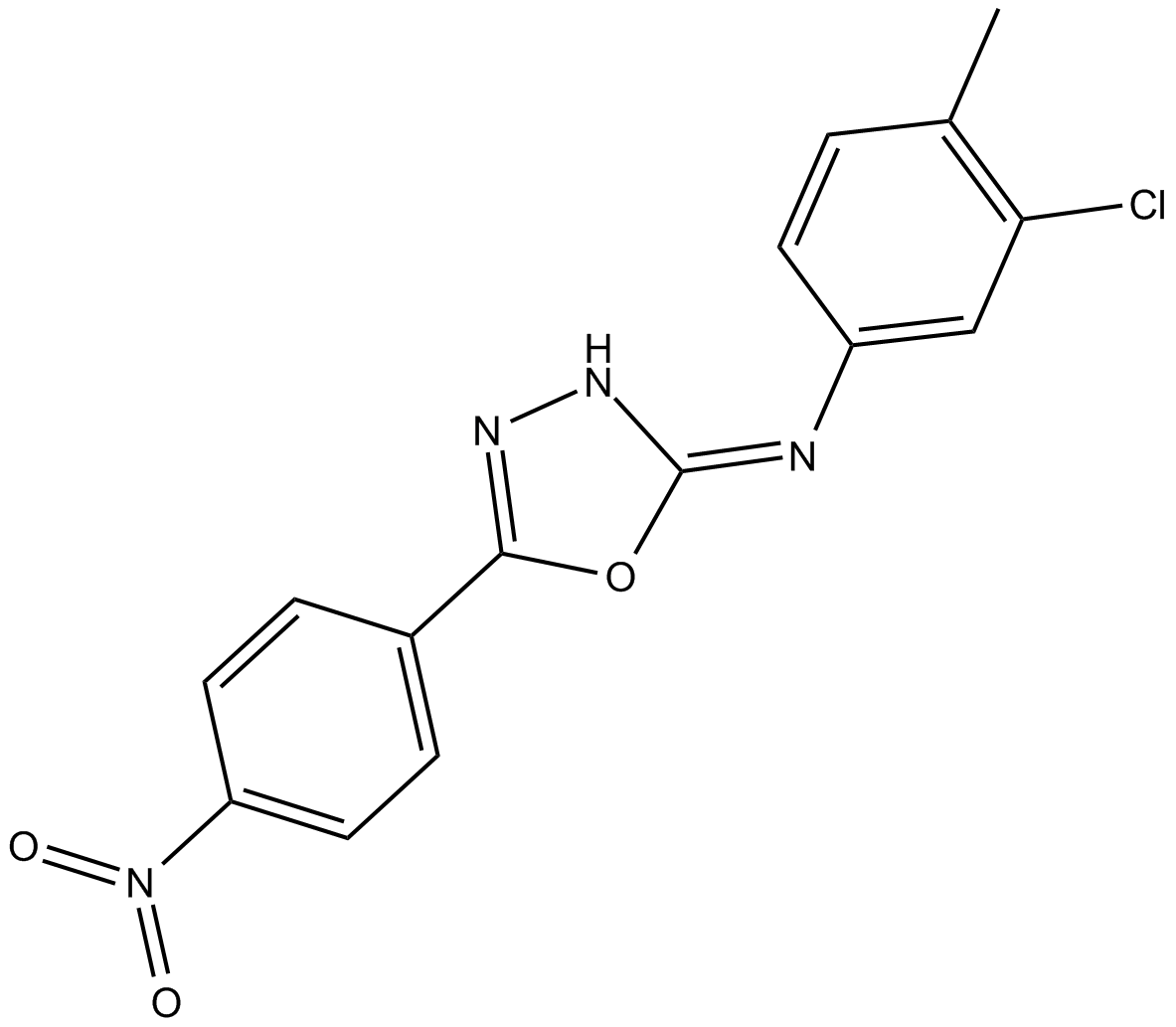 B5561 TC-G 24Summary: GSK-3β inhibitor
B5561 TC-G 24Summary: GSK-3β inhibitor -
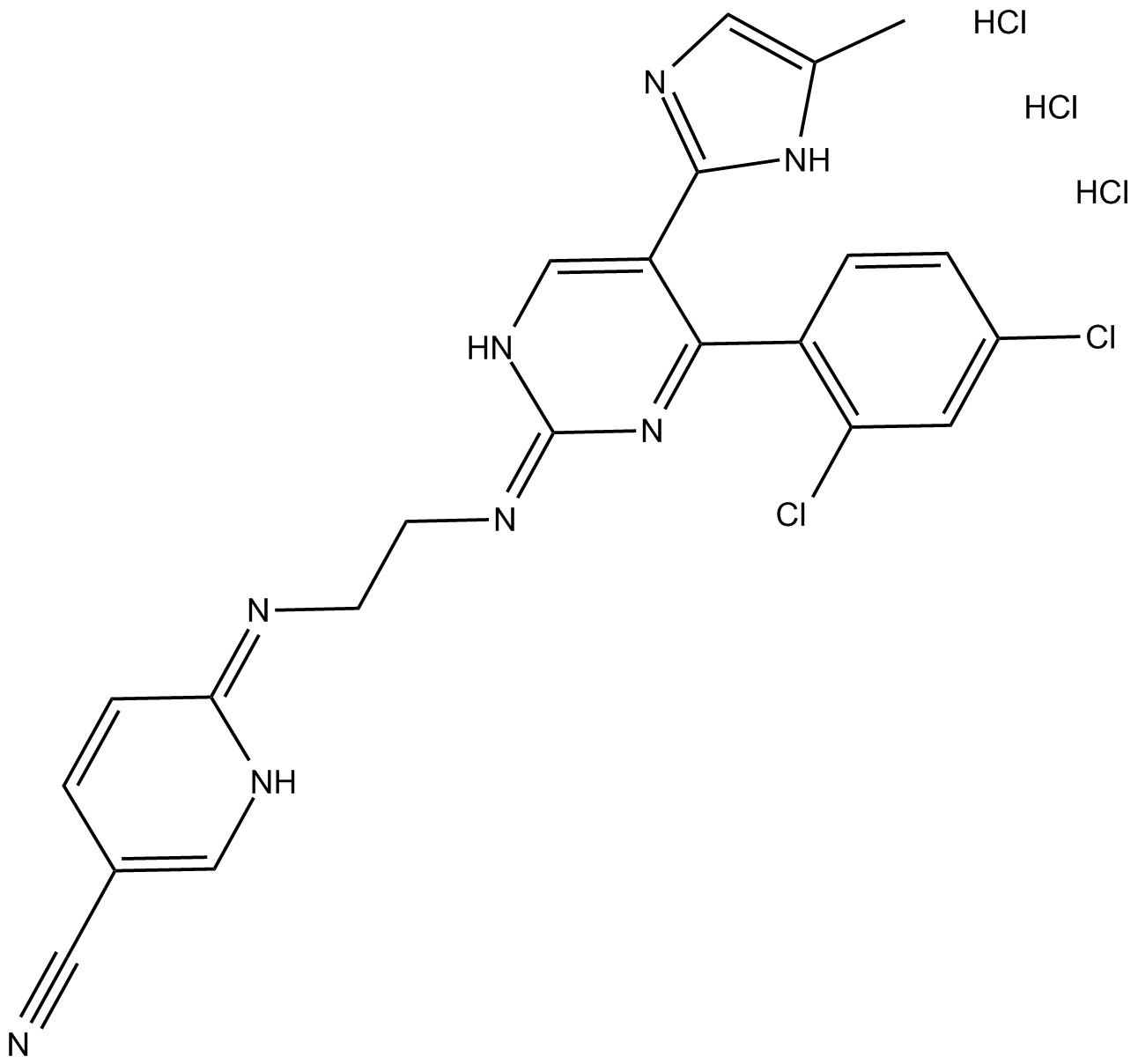 B5779 CHIR 99021 trihydrochlorideSummary: A glycogen synthase kinase 3 (GSK-3) inhibitor
B5779 CHIR 99021 trihydrochlorideSummary: A glycogen synthase kinase 3 (GSK-3) inhibitor

